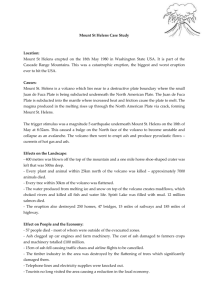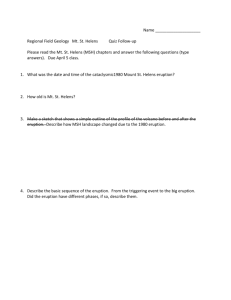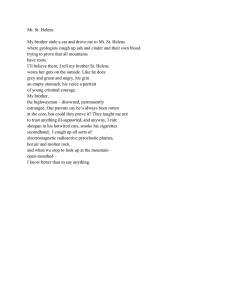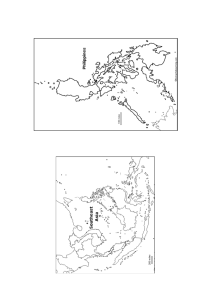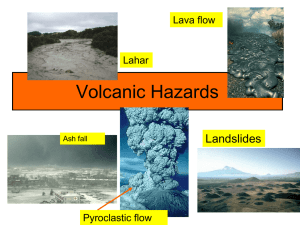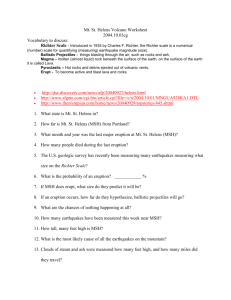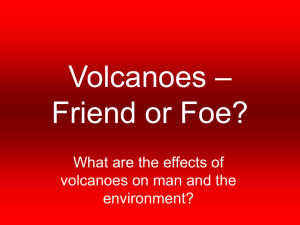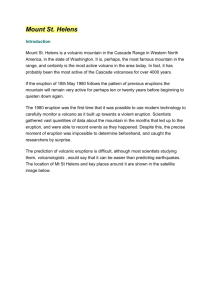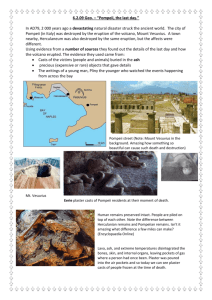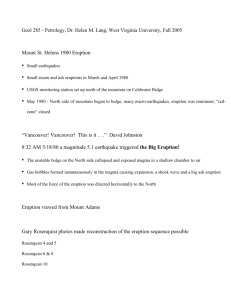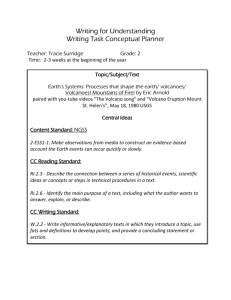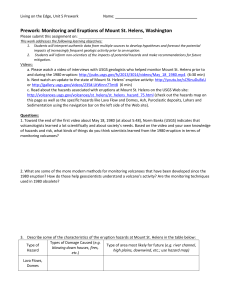lesson-2-volcanoes-mt-st-helens
advertisement
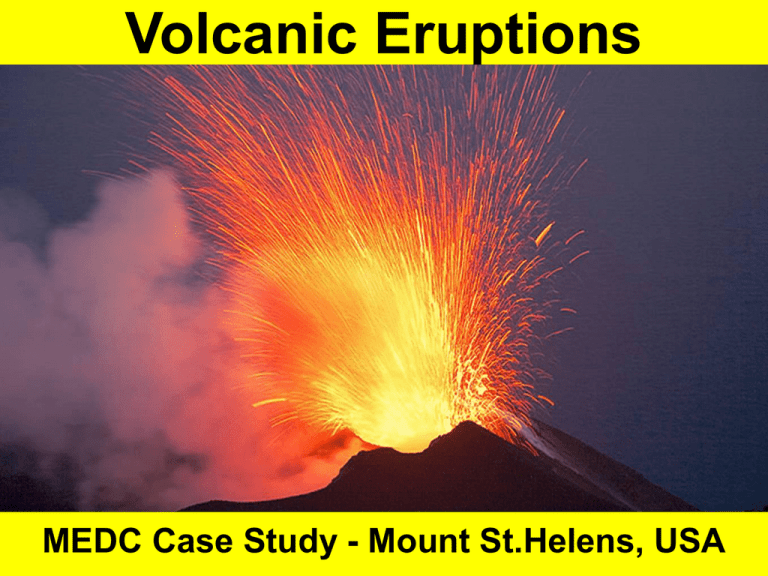
Volcanic Eruptions MEDC Case Study - Mount St.Helens, USA Mount St. Helens, USA – MEDC Case Study • Is part of the ring of fire. • Well known for ash explosions and pyroclastic flows. • Most famous eruption – 18th May 1980. • 57 people were killed, 250 homes destroyed. • The 1980 eruption was the first time that it was possible to use modern technology to carefully monitor a volcano as it built up towards a violent eruption. • Trees were pushed flat pointing away from the source of the blast. Such was the speed of the moving air and debris that it overtook cars as people tried to escape. • Its last eruption was 10th July 2008! The little Juan de Fuca ocean plate slides under the continental plate. As the ocean plate descends the rock melts and magma rises. This has created the Cascade Range of volcanoes. Mt St Helens – causes of the eruption Juan de Fuca plate North American Plate The Volcano at Mt St Helens was formed because the _________ plate is ________ under the _________ plate. When this happens _________ occurs and _______is formed under ____________ . The magma rises and when the pressure is _________ a volcanic eruption occurs. Juan de Fuca pressure subducted North American Melting magma released http://www.youtub e.com/watch?v=xP2 dreOI8gI&feature=r elated April May 1980 A bulge was growing on the north flank. May 18th at 8.32 a.m. An earthquake occurs under the volcano and triggers a huge landslide. May 18th at 8.33 a.m. With the pressure released a huge lateral blast heads northwards May 18th rest of the day More and more ash shoots up high into the atmosphere. It gradually blows around the world. PRIMARY EFFECTS Material from a massive landslide sped down the mountain, filling Spirit Lake and, mixed with lake water, racing down the Toutle and Kalama rivers as a mudflow (or lahar). Explosions of gas and steam flatened everything in its path Snow melt mixed with ash and mud carried huge amounts of debris, trees, cars etc Ash clouds circulated the earth for 7 days. The volcano was reduced in height by 400 meters. 57 DEAD. Pyroclastic Clouds The pyroclastic cloud caused hundreds of trees to be completely destroyed beneath the volcano. Pyroclastic Flows – Mt. St.Helens May 1980 The pyroclastic flow contained large boulders up to 1 metre in diameter Large bulldozer wrecked by the pyroclastic flow of May 18th 1980 Pyroclastic Flows – Mt. St.Helens May 1980 Before After The same marker pole Ash Clouds SECONDARY EFFECTS Road accidents Plane crash Plant and animal life wiped out Rivers polluted $860 million costs to the economy $450 in the timber trade $150 Tourism Rivers polluted, bridges wiped out. Today’s Tasks (1) On your diagram from earlier, add some of the labels/numbers from diagram B. (2) Copy and complete the table below using diagram C (3) Complete the Mount St. Helens worksheet Social Impacts Economic Impacts Environmental Impacts
